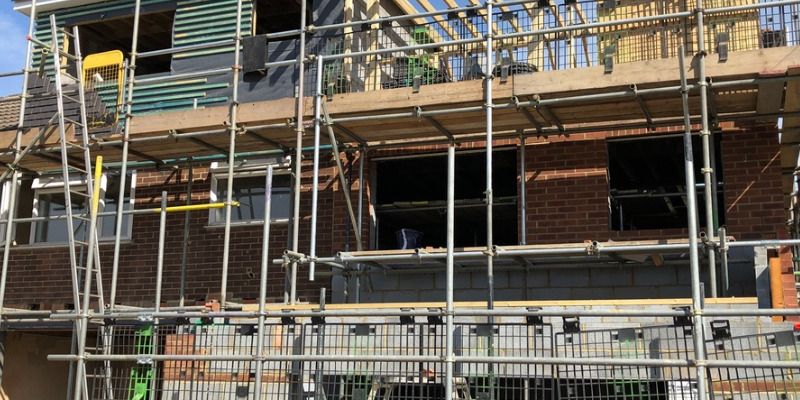What Makes A Self Build Structural Warranty Unique?
Not sure whether you need a self build structural warranty for your project?
A 10-year structural warranty offers vital protection against defects and problems in new build homes. But did you know that not all of these insurance products are designed the same way? Instead, they reflect the development route being followed and the needs of the first and subsequent homeowners. Self builders are both the builder and the homeowner. In the structural warranty world, this what makes a self build structural warranty unique.
How does a standard new home warranty work?
Most people are familiar with the concept of buying a new home from a developer or builder. Because they will be benefiting from a 10-year new home warranty as part of this. In this type of transaction, the builder will be registered with the warranty provider. They then gift the first purchaser a 10-year structural warranty with the property. Under this scenario, the builder will be bound to investigate and remediate defects arising in the home during the first two years.
It’s a bit like a manufacturer’s warranty really. Importantly, during this defect period, the warranty company provides additional insurance cover to protect the homeowner in the event the developer fails to meet their obligations. That same insurance then continues in years three to 10 to provide direct cover to the homeowner for defects that may arise. To protect the resilience of this type of product, the warranty supplier must put onerous legal and financial securities in place that will ensure the builder meets their obligations. This creates a recourse opportunity, so that the warranty provider can recoup its costs if it has to step in during the defects period.
How does a specific self build structural warranty differ and what makes a self build structural warranty unique?
Self builders need to avoid structural warranties with a defect period. A high percentage of structural warranty claims occur in the first two years. Clearly as you’re directly commissioning the build, a standard new home warranty would make you responsible for issues in that timeframe. If you’re building your own dream home, you’re almost certainly putting your life savings into the project. So, you’re highly unlikely to have the financial resources in place to rebuild a property which has been the subject of a major defect. Nor are you going to want to be bound by the significant onerous legal instruments outlined above.
This is where the uniqueness of a self build warranty comes in to its own. The policy is designed to give you as builder and first homeowner insurance cover from the date of practical completion. Importantly, it does not have a defects period. So it provides cover from day one, de-risking the financial implications of a major defect.
Are there any other benefits to using a self build warranty?
Yes! One example is around the community infrastructure level (CIL). This is a charge on new development that can run to the £10,000s. Around 10 years ago, the National Custom and Self Build Association (NaCSBA) secured a CIL charge exemption from the government. Specifically for genuine owner-occupied self build projects. A self build warranty carries a clause which states that, as the self builder, you must live in the property for at least 12 months before it can be transferred (sold) to a successor in title. It is for this reason that a self build warranty is deemed one of the instruments with which you can demonstrate that your project is CIL exempt. Protek frequently receives frantic calls from self builders who have finished their builds with the benefit of just a PCC certificate (see below), looking to obtain a self build warranty retrospectively to avoid paying CIL charges.
Can I just use a professional consultant’s certificate (PCC)?
Previously known as an architect’s certificate, a six-year PCC is nothing like a structural warranty. It is simply an extension to the consultant’s professional indemnity insurance. So, your ability to claim relies totally on you demonstrating that they were negligent for not picking up a problem during the build which later manifested into a defect. Proving negligence is not easy. It can often result in costly legal battles. Unfortunately, bringing unwelcome extra stress if you are experiencing serious problems with your new home.
In contrast, with a self build warranty, whether or not a defect was actually picked up during the works is irrelevant. Once the cover is issued, you are able to make a claim if you are experiencing problems with the build. This is incredibly important when you consider the implications of selling your home further down the line. A self build warranty provides cover for successors in title. So, if you sell the property, the warranty is automatically transferred to the new owners. This means they can also claim on the policy and not pursue you as the builder.






